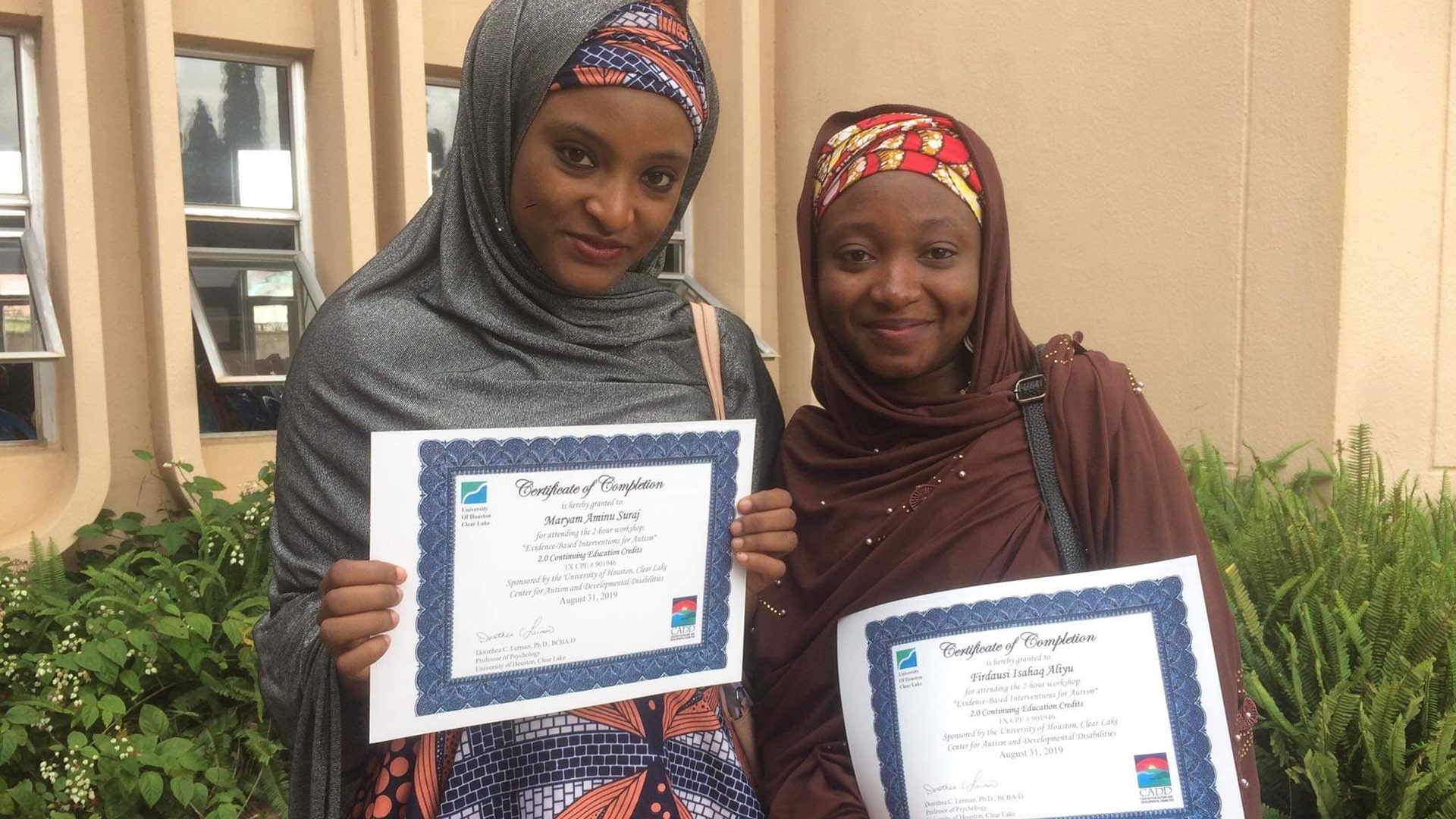UHCL volunteer autism telehealth initiative expands to 30 countries
September 12, 2019 | UHCL Staff

The World Health Organization estimates that one in 160 children in the world has an autism spectrum disorder,
generally characterized by certain behavioral problems and challenges in intellectual
development. For Loukia Tsami, a board certified behavior analyst and research associate in University of Houston-Clear Lake’s Center for Autism and Developmental Disabilities, the location of these children is almost irrelevant. What’s important is that she
knows how to help them, no matter where they are.
Tsami, a native-born Greek, said many families around the world have no resources
at all to help their children with autism. “But if they have access to the internet
and computer or a phone with a camera, I can help,” she said.
Since 2016, she has been providing support to parents of children with autism by establishing
a two-way interactive video connection between her own computer and parents’ devices.
She coaches them to interact with their children in ways that will help her understand
why the children are engaging in problem behavior. She also gives presentations to
large groups of parents and professionals to educate them about the disorder and behavior
therapies that can help.
“In the beginning, we were helping children in Turkey and Greece,” she said. “Now
we are getting bigger and bigger. Today, we are serving families in 30 countries,
including Nigeria, where I have just given my fourth workshop. There were 132 people
present.” The workshop was organized in Kaduna, Nigeria, by a local pediatrician whose
son has autism. “In Africa, there is a serious stigma surrounding people with developmental
disabilities, especially autism,” Tsami explained. “Education is very much needed.
This pediatrician is a leader in her community and in collaboration with others, they
created a conference and invited me as a (virtual) speaker.”
Since she began her telehealth autism program, she has seen an exponential growth
in the number of families and professionals seeking intervention for children. “We
began with 47 people attending one presentation in 2016,” she said. “To date, we have
had over 3,000 people attending presentations. We send certificates of completion
to everyone who attends a training presentation. This empowers and motivates people
and they’re proud of it.”
In many countries, Tsami has done telehealth continuously during the past three years.
“In Nigeria alone, we have presented in three different cities,” she said. When language
became a barrier, Tsami found interpreters to volunteer their time to help her communicate. “Most of the families we serve don’t
speak English, so these interpreters help us communicate, and they’re also aware of
the culture, values and beliefs of the participant families, as most of them were
raised in those countries and still have strong connections," she said.
She added that she now has 13 interpreters, many of them UHCL students, staff or faculty.
When she began helping families internationally, Tsami was just a “one-woman show.”
Now, she has 18 masters or doctoral-level BCBA professionals to co-present with her.
“Imagine if I had more people helping me do this,” she said. “We are trying to develop
a model because we believe in this idea. I’m seeing that we’re beginning to peak with
our idea — media in the countries we’re working in are hearing about us and covering
what we are doing.”
She said she was fortunate to work in an environment that allows her to do this. “(Professor
of Psychology and Director of CADD) Dorothea Lerman is the adviser for Telehealth Autism and she’s one of the best in the country,” she
said.
“Loukia dedicates an extraordinary amount of time to this project,” Lerman said. “She
works all hours of the night and on weekends to accommodate families and professionals
across the globe. She is literally changing the lives of so many families who have
so few resources. Loukia and her assistants do this completely on a voluntary basis.
They are very special people.”
Tsami and her volunteers are gathering data on their work and plan to publish the
outcomes in academic journals. “But in the end, we do this because believe in it,”
she said. “This is not a moneymaking idea, this is a ‘change the world’ idea.”
Read more online about UHCL’s Telehealth ABA World Project.
About the Author:
Recent entries by
October 18 2022
Better technology transforms campus safety: Police Chief demonstrates SafeZone to students
October 14 2022
Student's skill with drones takes chicken turtle research to new heights
October 11 2022
Planting event to help UHCL restore native plants to campus, support environmental sustainability







